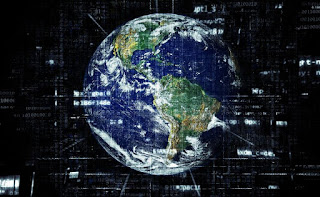Cbse notes social science class-10th(economy)
→Globalisation means integrating the economy of a country with the economics of the countries under conditions of free flow of trade and capital and movements of persons across borders.
→Integration of markets in different countries is known as foreign trade .
→Planning Commission in india has laid emphasis on the development of foreign trade in the five year plans due to the following reasons:
●A country can make efficient use of its natural resources.
●It can export its surplus production.
●Further,through effective regularisation of foreign trade ,employment ,output,prices and industrialisation, economic development of a country can properly accelerate.
→Investment made by multinational Corporations(MNCs) is called foreign investment.
→MNCs playing a major role in the process of rapid integration or interconnection between countries. Now more regions of the world are in closer contact with each other than a few decades back.
→MNCs play an important role in the indian economy by setting up production jointly with some of the local companies.Example:MNCs can provide money for additional investments like buying new machines for faster production.Take another example-Cargil foods,a very large American MNCs,has bought smaller Indian Companies such as Parakh foods .
→Rapid improvement in information and Communication technology has been one major factor that has stimulated the globalisation process.To access information instantly and to communicate from remote areas,devices such as telephones, mobile and computers are very useful.Futher,it has played a major role in spreading out production of services across countries.
Impact of globalisation
→Impact of globalisation on the country is manifold .This can be understood by these examples.
→MNCs have increased their investment over the past 20 years,which is beneficial for them as well as for indians also.This is because these MNCs provide employment opportunities to the masses and local companies supplying raw material to these industries have prospered .But globalisation has failed to solve the problem of poverty and it has widened the gap between the rich and the poor .Only skilled and educated class has benefited from globalisation.
→There is a greater choice for consumers,with a variety of goods and at cheap prices .Now they enjoy a much higher standard of living.
→Liberalisation of economy means to free it from direct or physical controls imposed by the government.In other words,it implies liberating the trade and industry from unwanted government control and restrictions.
→Let us see the effect of foreign trade through the example of chinese toys in the indian market.Chinese toys have become more popular in the Indian market because of their cheaper prices and new designs.Now indian buyers have a greater choice of toys at lower prices.Simultaneously ,chinese you makers get the opportunity to expand bussiness.On the other side,Indian toy makers face losses.
→World trade organisation (WTO) was started at the initiative of developed countries.The main objective of the world trade Organisation is to liberalise international trade .At present 149 countries are members of the WTO.
→At present ,central and state government in india are taking special steps to attract foreign Companies to invest in india.For this , special Economic Zones (SEZs) are being set up ,Special Economic zones have world class facilities-electricity, telecommunication,broadband internet ,roads,transport,Storage and recreational facilities-to attract investment from MNCs and other companies.
Challenges and Factors that Enabled Globalisation
→Globalisation and liberalization have posed major challenges for small producers and workers.
→ Small manufacturers have been hit hard due to competition. Several of the units have shut down rendering many workers jobless.
Around 20 million of workers are employed in small industries. Because of growing competition,most employers these days prefer to employ workers flexibly. This means that workers have no secure jobs. This can be explained with the help of an example:35 years old Sushila got a job after searching for six months. She is a temporary worker. She did not get any benefits such as provident fund, medical allowance, bonus, etc.
A day off from work means no wage.
→Competition among garment exporters has allowed the MNCs to make large profits, but workers are denied their fair share of benefits brought about by globalization.
The government can take steps to ensure that the benefits of globalization reach everyone:
→Formulate labour laws that are effective and watertight to ensure the rights of workers.
→Have policies to protect the interests of the small producers against the MNCs.
→Erect barriers to protect the domestic economy from foreign trade and unfair competition from developed countries.
→Align with other developing countries to negotiate with WTO to impose trade restrictions like imposition of tariffs and quotas.
→Factors that enabled globalization:
Factors that supported globalization in India are as follows
●Reduction of trade barriers with a view to allowing free flow of goods to and from other countries.
●Involvement of various local producers with MNCs in various ways.
●Some of the large indian companies like Tata motors,Infosys(IT),Rambabu,Asian Paints,etc. Emerged as MNCs and started working globally.


.jpg)


0 Comments
Use the respectfully words in comment box.